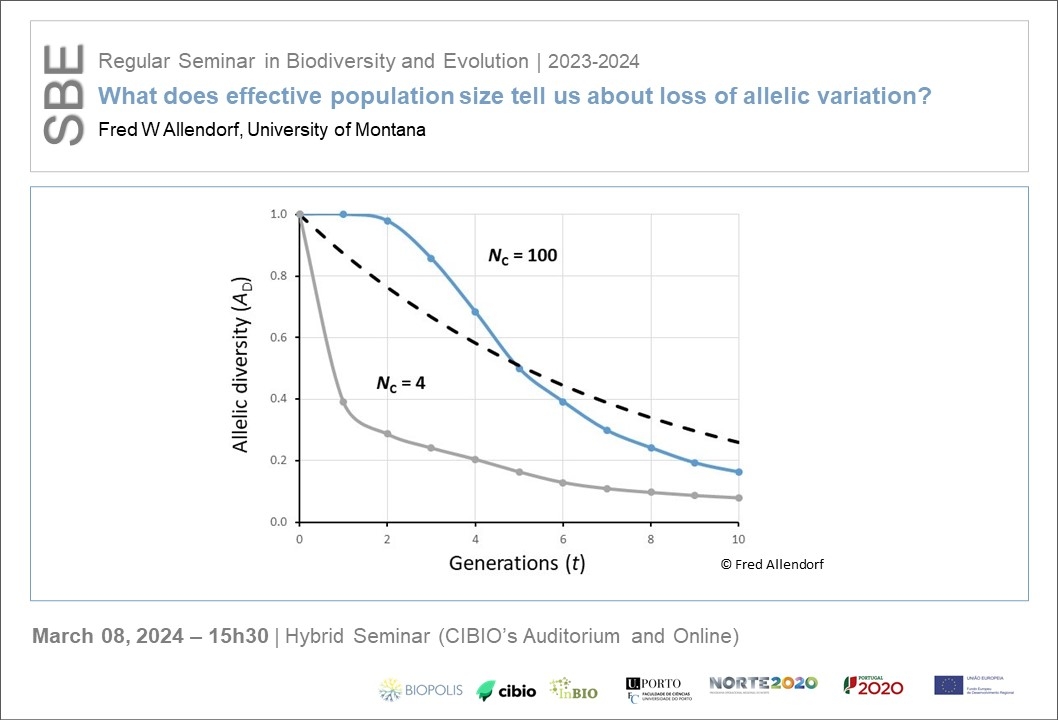What does effective population size tell us about loss of allelic variation?
Event
REGULAR SEMINAR IN BIODIVERSITY AND EVOLUTION
March 08th, 2024
Fred W Allendorf, University of Montana | 15h30 | Hybrid Seminar

REGULAR SEMINAR IN BIODIVERSITY AND EVOLUTION
There are two primary measures of the amount of genetic variation in a population at a locus: heterozygosity and the number of alleles. Effective population size (Ne) provides both a measure of the amount of heterozygosity in a population at drift-mutation equilibrium and the rate of loss of heterozygosity because of genetic drift. In contrast, the number of alleles in a population at drift-mutation equilibrium is a function of both Ne and census size (NC). In addition, populations with the same Ne can lose allelic variation at very different rates. Allelic variation is much more sensitive to bottlenecks than heterozygosity. Expressions that are used to describe the effects of bottlenecks on Ne do not provide good predictions of the loss of allelic variation. These effects are much greater for loci with many alleles, which are often very important for adaptation. Heterozygosity provides good estimates of the rate of adaptive change in the short-term, but allelic variation provides important information about long-term adaptive change. The guideline of long-term Ne being greater than 500 is often used as a primary genetic metric for evaluating conservation status. We recommend that this guideline be expanded to take into account allelic variation as well as heterozygosity.
Fred W. Allendorf is a Regents Professor Emeritus at the University of Montana, USA. He was awarded the Molecular Ecology Prize in 2015, and he was elected to the American Academy of Arts and Science in 2019. He is a past President of the American Genetic Association, and former Director of the Population Biology Program of the US National Science Foundation. He has taught conservation genetics throughout the world, including the University of Western Australia, the Victoria University of Wellington, the University of Costa Rica, the Organization for Tropical Studies in Costa Rica, and the National Zoological Garden of South Africa.
[Host: Paulo Célio Alves, Conservation Genetics and Wildlife Management - CONGEN]
Click here to watch the seminar recording
Click here to watch the seminar recording
